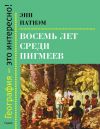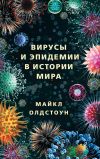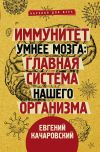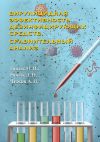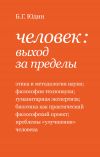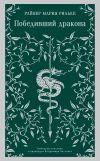Текст книги "Надежда обретенная и изобретенная. Эпистемология добродетелей и гуманитарная экспертиза биотехнологий"

Автор книги: Сергей Шевченко
Жанр: Медицина, Наука и Образование
Возрастные ограничения: +12
сообщить о неприемлемом содержимом
Текущая страница: 16 (всего у книги 17 страниц)
Список литературы
Агацци Э. Научная объективность и ее контексты / пер. с англ. Д.Г. Лахути. М.: Прогресс-Традиция, 2017. С. 688.
Адорно Т., Хоркхаймер М. Диалектика Просвещения. Философские фрагменты. М. – СПб.: Медиум: Ювента, 1997. С. 312.
Ашмарин И.И., Юдин Б.Г. Основы гуманитарной экспертизы // Человек. 1997. № 3. С. 76–85.
Белялетдинов Р.Р. Риски современных биотехнологий: социогуманитарный анализ. М.: Изд-во. МосГУ, 2019. С. 160.
Беридзе М.А. Роль бактериофаготерапии в борьбе с гнойничковыми заболеваниями кожи. Тбилиси: Грузбиомедгиз, 1938. С. 156.
Борисов Н. FAQ: Таргетные препараты в онкологии // Постнаука. 2014. URL: https://postnauka.ru/faq/27800
Борхес Х.Л. Бессмертие // Коллекция: Рассказы; Эссе; Стихотворения / пер. с исп. СПб.: Северо-Запад, 1992. C. 209–225.
Васильев В.В. Сознание и вещи: Очерк феноменалистической онтологии. М.: URSS, 2014. С. 240.
Воинов Г.А. К статистике и эпидемиологии холеры: Летняя эпидемия холеры в Симферополе в 1922 г. Симферополь: Симфероп. горрайздравотд., 1924. С. 28.
Горфункель А.Х. Гуманизм и натурфилософия итальянского Возрождения. М.: Мысль, 1977. С. 359.
Гуссерль Э. Кризис европейских наук и трансцендентальная феноменология: Введение в феноменологическую философию. СПб.: Владимир Даль, 2004. С. 400.
Деар П., Шейпин С. Событие революции в науке. М.: Новое литературное обозрение, 2015. С. 576.
Деннет Д. Сладкие грезы: чем философия мешает науке о сознании / пер. с англ. М.О. Кедровой. М.: URSS, 2017. С. 304.
Джохадзе И. Прагматический реализм Хилари Патнэма. М.: Канон+, 2013. С. 288.
Долар М. Атом и пустота – от Демокрита до Лакана / пер. с англ. Н. Мовнина // Новое литературное обозрение. 2014. № 6. С. 16–28.
Иванова Н.Н. Когнитивный потенциал воображения в феноменологии // Вестник СПбГУ. Серия 6. Политология. Международные отношения. 2003. № 4. С. 25–27.
Каримов А.Р. Эпистемология добродетелей: научная монография. СПб.: Алетейя, 2019. С. 428.
Карпенко А.С. Контрфактуальное мышление // Логические исследования. 2017. Т. 23. № 2. С. 98–122.
Карпенко А.С. Сверхреализм. Часть I. От мыслимого к возможному // Философский журнал. 2016. Т. 9. № 2. С. 5–23.
Карпенко А.С. Сверхреализм. Часть II: От возможности к реальности // Философский журнал. 2016. Т. 9. № 3. С. 5–24.
Касавин И.Т. Эпистемология добродетелей: к сорокалетию поворота в аналитической философии // Эпистемология и философия науки. 2020. Т. 56. № 3. С. 6–19.
Касавин И.Т. Коллективный субъект как предмет эпистемологического анализа // Эпистемология и философия науки. 2015. № 4. С. 5–18.
Кларк Г. Прощай, нищета! Краткая экономическая история мира / пер. с англ. Н. Эдельман. М.: Изд-во Ин-та Гайдара, 2013. С. 544.
Костюкевич О.И. Применение бактериофагов в клинической практике: эпоха Возрождения // РМЖ. 2015. № 21. С. 1258–1262.
Крюи П. Охотники за микробами / пер. с англ. О. Колесников. М.: Астрель, 2012. С. 448.
Курс частной эпидемиологии / под ред. В.М. Бермана. М.: ОГИЗ, 1936. С. 519.
Куслий П.С. Имена, дескрипции и проблема жесткой десигнации // Эпистемология и философия науки. 2008. № 2. С. 103–118.
Латур Б. Наука в действии: следуя за учеными и инженерами внутри общества / пер. с англ. К. Федоровой; науч. ред. С. Миляева. СПб.: Изд-во ЕУСПб, 2013. С. 414.
Латур Б. Политики природы. Как привить наукам демократию / пер. с франц. Е. Блинова. М.: Ад Маргинем Пресс, 2018. С. 336.
Летаров А. Сегодня существуют штаммы бактерий, устойчивые ко всему арсеналу антибиотиков // Российская академия наук. 2016. URL: http://www.ras.ru/digest/showdnews.aspx?id=32acabc8-f1df-4cf0-9394-060e7d523e2c&print=1
Лехциер В.Л. Болезнь: опыт, нарратив, надежда. Очерк социальных и гуманитарных исследований медицины. Вильнюс: Logvino literaturos namai, 2018. С. 312.
Локк Дж. Сочинения в 3 т. / пер. с англ. А.Н. Савина. Т. 1. М.: Мысль, 1985. С. 621.
Макеева Л.Б. Семантические идеи Х. Патнэма // История философии. 1997. Вып. 1. С. 121–134.
Мамфорд Л. Миф машины. Техника и развитие человечества / пер. с англ.: Т. Азаркович, Б. Скуратова. М.: Логос, 2001. С. 408.
Маркс К., Энгельс Ф. Сочинения. Т. 25. Ч. 1. М.: Госполитиздат, 1961. С. 545.
Мельник М.И., Хастович Р.И. Бактериофаг при дизентерии: терапия и профилактика, техника изготовления и применения механизм бактериофагового действия в организме. Харьков: Гос. медицинское изд-во, 1935. С. 69.
Михайлова В. Дженерики как «русская рулетка» // Pravmir.ru. 2017. URL: https://www.pravmir.ru/dzheneriki-kak-russkaya-ruletka
Мол А. Множественное тело: онтология в медицинской практике / Пер. с англ. К.С. Майоровой, В. Гусейновой, Д. Кожемяченко, Г. Коновалова, В. Легейдо, М. Меньшиковой, А. Павловой, А. Салина. Пермь: Гиле Пресс, 2017. С. 254.
Мотрошилова Н.В. «Идеи I» Эдмунда Гуссерля как введение в феноменологию. М.: Феноменология-Герменевтика, 2003. С. 716.
Невинная И. Приговор отменяется: уникальный препарат от рака кожи получил первый пациент. Российская газета – Федеральный выпуск. 2016. № 7164 (296). URL: https://rg.ru/2016/12/28/skvorco-va-rasskazala-ob-uspehah-v-razrabotke-preparata-ot-raka-kozhi.html
Поздеев О.К., Федорова Е.Р., Валеева Ю.В. Микробиология // Бактериофаги: учеб. пособие / О.К. Поздеев, Е.Р. Федорова, Ю.В. Валеева. Казань: КГМУ. 2012. С. 50.
Покровская М.П., Каганова Л.С., Морозенко М.А., Булгакова А.Г., Скаценко Е.Е. Лечение ран бактериофагом. М.: Медгиз, 1942. С. 58.
Попова О.В., Тищенко П.Д., Шевченко С.Ю. Нейроэтика и биополитика биотехнологий когнитивного улучшения человека // Вопросы философии. 2018. № 7. С. 96–108.
Предтеченский С.Н. К изучению бактериофагов речных вод. Саратов, 1929. 4 с. [Отд. отт. из журн. «Вестник микробиологии, эпидемиологии и паразитологии». Т. III. Вып. 3, 1929]
Разработка гармонизированных с международными нормами и подходами научных и технических руководств в сфере обращения лекарственных средств, в том числе по разработке и исследованиям лекарственных средств. Отчет о НИР (промежуточный) ФГБУ «НЦЭСМП» Минздрава России. М., 2015. С. 341.
Резников В.М. Объяснение явлений посредством моделей в естествознании и их понимание // Философия науки. 2015. № 4. С. 29–39.
Саверский А., Морозов Д., Грачева Е. «Опасные» дженерики: чем обернется запрет на импорт лекарств // РБК. 2018. URL: https://www.rbc.ru/spb_sz/17/04/2018/5ad5ec569a794708835fa038
Семашко Н.А. Цели и задачи профилактической медицины // Журнал для усовершенствования врачей. 1925. № 2. С. 63–75.
Симонов А.Н., Пестунова О.П., Матвиенко Л.Г., Пармон В.Н. Природа возникновения автокатализа в реакции Бутлерова // Кинетика и катализ. 2007. № 2. С. 261–270.
Слинин Я.А. Эдмунд Гуссерль и его «Картезианские размышления» // Логические исследования. Картезианские размышления. Кризис европейских наук и трансцендентальная феноменология. Кризис европейского человечества и философии. Философия как строгая наука / Э. Гуссерль. М.: ACT, 2000. С. 290–323.
Соколов А.В., Липатова И.С. Оригинальные препараты и дженерики: проблема выбора // Оценка медицинских технологий. 2010. № 2. С. 44–48.
Степин В.С. Классика, неклассика, постнеклассика: критерии различения // Постнеклассика: философия, наука, культура. СПб.: Издательский дом «Мiръ», 2009. С. 249–295.
Столярова О. Третья волна исследований науки как философское обоснование STS // Логос. 2018. № 5. С. 31–52.
Тищенко П.Д. Трансдуктивность и эвристические ресурсы трансдисциплинарной парадигмы инноватики (казус проактивной медицины, ПМ) // Рабочие тетради по биоэтике. Вып. 19: Биотехнологическое улучшение человека: гуманитарная экспертиза. С. 147–159.
Хохлов А.Л., Лилеева Е.Г., Синицина О.А., Спешилова С.А., Демарина С.М., Шитов Л.Н. Проблемы проведения биоаналитической части исследований биоэквивалентности лекарственных препаратов в России // Фармакокинетика и Фармакодинамика. 2014. № 1. C. 37–43.
Чалмерс Д. Сознающий ум: в поисках фундаментальной теории / пер. с англ. В.В. Васильева. М.: URSS, 2017. С. 512.
Черняк А.З. Знание и удача // Эпистемология и философия науки. 2020. Т. 57. № 2. С. 61–78.
Шевченко С.Ю. Групповые убеждения о страдании: казус экспертного выбора препарата от меланомы // Социология власти. 2017. № 3. С. 144–162.
Шевченко С.Ю. Народная наука: отличимы ли люди от бактерий? // Эпистемология и философия науки. 2018. Т. 55. № 1. С. 171–183.
Шевченко С.Ю. Иерархия оценок технонауки: казус спора об эквивалентности лекарств // Эпистемология и философия науки. 2019. Т. 56. № 3. 2019. C. 186–201.
Эко У. Роль читателя: исследования по семиотике текста / пер. с англ. и итал. С. Серебряного. Москва: РГГУ, 2005. С. 501.
Юдин Б.Г. От этической экспертизы к экспертизе гуманитарной // Гуманитарное знание: тенденции развития в XXI веке. В честь 70-летия Игоря Михайловича Ильинского / колл. моногр.; под общ. ред. Вал. А. Лукова. М.: Изд-во Нац. ин-та бизнеса, 2006. С. 214–237.
Юдин Б.Г. Технонаука и «улучшение» человека // Эпистемология и философия науки. 2016. Т. XLVIII. № 2. С. 18–27.
Alfano M. Expanding The Situationist Challenge To Responsibilist Virtue Epistemology // The Philosophical Quarterly. 2012. No. 62. P. 223–249.
Amsterdamska O. Demarcating Epidemiology. Science, Technology, & Human Values. 2005. Vol. 30. No. 1. P. 17–51.
Amsterdamska O. Stabilizing Instability: The Controversy over Cyclogenic Theories of Bacterial Variation During the Interwar Period // Journal of the History of Biology. 1991. Vol. 24. No. 2. P. 191–222.
Armstrong D. Bodily sensations. London: Routledge and Paul, 1962. 132 p.
Bacharach M. Beyond Individual Choice: Teams and Frames in Game Theory. Princeton University Press, 2006. 248 p.
Beauchamp T.L., Childress J.F. Principles of biomedical ethics / 4 th ed. New York: Oxford University Press, 1994. 512 p.
Bird, A. What is scientific progress? // Noûs. 2007. Vol. 41. No. 1. P. 64–89.
Bloeser C., Stahl T. Hope // The Stanford Encyclopedia of Philosophy Edward N. Zalta (ed.). 2017. URL: https://plato.stanford.edu/archives/spr2017/entries/hope
Blumenthal-Barby J.S., Ubel P. In defense of ‘denial’: Difficulty knowing when beliefs are unrealistic and whether unrealistic beliefs are bad // American Journal of Bioethics. 2018. Vol. 18. No. 5. P. 4–15.
Budeprion XL 300 mg not therapeutically equivalent to Wellbutrin XL 300 mg" (Press release) // U.S. Food and Drug Administration. 2012. URL: https://www.fda.gov/Drugs/DrugSafety/PostmarketDrugSafetyInfor-mationforPatientsandProviders/ucm322161.htm
Burstrom J. et al. A comparison of individual and social time-trade-off values for health states in the general population // Health Policy. 2006. No. 76 (3). P. 359–370.
Carter J.A. De Minimis Normativism: a new theory of full aptness // Philosophical Quarterly. 2020. (forthcoming)
Carter J.A., Pritchard D. Knowledge-How and Epistemic Value // Australasian Journal of Philosophy. 2015. Vol. 93. No. 4. P. 799–816.
Cartwright N. Comments and Replies // Nancy Cartwright: Laws, Capacities and Science / Paul, Matthias (Hrsg.). Münster: LIT-Verlag, 1998. 128 p.
Cartwright N. Reply to Stathis Psillos // Nancy Cartwright's Philosophy of Science / Hartmann, Stephann, Hoefer, Carl and Luc Bovens (eds.). London: Routledge, 2008. 406 p.
Cartwright N. The Dappled World. A Study of the Boundaries of Science. Cambridge: Cambridge University Press, 1999. 260 p.
Cartwright N. Where Do Laws of Nature Come From? // Dialectica. 1997. Vol. 51. No. 1. P. 65–78.
Cassam Q. Stealthy vices // Social Epistemology Review and Reply Collective. 2015. No.10. P. 19–25.
Cassam Q. The Possibility of Knowledge. Oxford: Oxford University Press, 2009. 256 p.
Cassam Q. Vice epistemology // The Monist. 2016. Vol. 99. № 2. P 159–180.
Cassam, Q. Diagnostic error, overconfidence and self-knowledge // Palgrave Commun. No. 3. 2017. P. 1–8.
Cassam Q. Vices of the Mind from the Intellectual to the Political. Oxford: Oxford University Press, 2019. 224 p.
Chignell A. The Ethics of Belief // The Stanford Encyclopedia of Philosophy / Zalta Edward N. (ed.). 2017. URL: https://plato.stanford.edu/archives/spr2017/entries/ethics-belief/
Clark A. What ‘Extended Me’ Knows // Synthese. 2015. Vol. 192. No. 11. P. 3757–3775.
Clark A., Chalmers D. The Extended Mind // Analysis. 1998. Vol. 58. No. 1. P. 7–19.
Cobb A. A Virtue-Based Defense of Perinatal Hospice. London et al.: Routledge, 2019. 194 p.
Cobb A. Hope for intellectual humility // Episteme. 2019. Vol. 16. No. 1. 56–72.
Cobb A. Loving Samuel: Suffering, Dependence, and the Calling of Love. Eugene: Cascade Books, 2014. 132 p.
Creager A.N. Adaptation or Selection? Old Issues and New Stakes in the Postwar Debates over Bacterial Drug Resistance // Studies in the History and Philosophy of the Biological and Biomedical Sciences. 2007. Vol. 38. No. 1. P. 159–190.
Daniel T. Wade Hampton Frost, Pioneer Epidemiologist 1880–1938: Up to the Mountain // American Journal of Epidemiology. 2004. No. 162. P. 290–291.
De Grefte J. Epistemic Justification and Epistemic Luck // Synthese. 2017. Vol. 195. No. 9. P. 3821–3836.
Dorst C. Why do the Laws Support Counterfactuals? // Erkenntnis. 2020. P. 1–22. (forthcoming)
Dzienis M.R., Atkinson V.G. Response rate to vemurafenib in patients with B-RAF-positive melanoma brain metastases: a retrospective review // Melanoma Res., 24(4). 2014. P. 349–353.
Eijkholt M. Medicine's collision with false hope: The False Hope Harms (FHH) argument //Bioethics. 2020. Vol. 34. No. 7. P. 703–711.
Fleming T.R. Surrogate endpoints and FDA’s accelerated approval process // Health Affairs. No. 1. 2005. P. 67–78.
Fricker M. Epistemic Injustice: Power and the Ethics of Knowing. Oxford: Oxford University Press, 2007. 208 p.
Gabriel J.M., Holman B. Clinical trials and the origins of pharmaceutical fraud: Parke, Davis & Company, virtue epistemology, and the history of the fundamental antagonism // History of Science. 2020. URL: https:// doi.org/10.1177/0073275320942435
Gerovich S. Parallel Worlds: Formal Structures and Informal Mechanisms of Postwar Soviet Mathematics // Historia Scientiarum. 2013. Vol. 22, No. 3. P. 181–200.
Gerovitch S. Creative discomfort: The culture of the Gelfand seminar at Moscow University // Mathematical Cultures: the London Meetings 2012–2014 / B. Larvor (Ed.). Basel: Birkhäuser, 2016. P. 51–70.
Gettier E. Is Justified True Belief Knowledge? // Analysis. 1963. Vol. 23. No. 6. P. 121–123.
Giere R.N. Distributed Cognition without Distributed Knowing // Social Epistemology. 2007. Vol. 21. No. 3. P. 313–320.
Gilbert M. Collective epistemology // Episteme. 2004. Vol. 1. No. 2. P. 95– 107.
Gilbert M. Modelling collective belief // Synthese. 1987. No. 73. P. 185–204.
Gilbert M. Remarks on collective belief // Socializing Epistemology: The Social Dimensions of Knowledge / Ed. by F. Schmitt. Lanham: Rowman & Littlefield, 1994. P. 235–257.
Greco J. The value problem // Routlege Companion to epistemology / Edited by Berneker S., Pritchard D. London et al.: Routlege, 2011. P. 219–231.
Greco D. A Puzzle about Epistemic Akrasia // Philosophical Studies, 2014. Vol. 167. No. 2. P. 201–219.
Griffith, F. The Significance of Pneumococcal Types // Journal of Hygiene. 1928. Vol. 27 No. 2. P. 113–159.
Hadley P. The Twort-d'Herelle Phenomenon // The Journal of Infectious Diseases.1928. No. 42. P. 263–434.
Hakli R. Group beliefs and the distinction between belief and acceptance // Cognitive Systems Research. 2006. Vol. 7. No. 2–3. P. 286–297.
Haraway D.J. Staying with the Trouble: Making Kin in the Chthulucene. Durham. Duke University Press, 2016. 312 p.
Hardwig J. Evidence, testimony, and the problem of individualism – a response to Schmitt // Social Epistemology. 1988. No. 2. P. 309–321.
Harper W. Knowledge and Luck // Southern Journal of Philosophy. 1996. Vol. 34. No. 3. P. 273–283.
Hatzivassiliou et al. RAF inhibitors prime wild-type RAF to activate the MAPK pathway and enhance growth // Nature. 2010. No. 464 (7287). P. 431–435.
Hempel C.G. Studies in the Logic of Confirmation I // Mind. 1945. Vol. 54. No. 13. P. 1–26.
Hookway C. Cognitive Virtues and Epistemic Evaluations // International Journal of Philosophical Studies. 1994. Vol. 2. No. 2. P. 211–227.
Hookway C. How to be a Virtue Epistemologist // Intellectual Virtue: Perspectives from Ethics and Epistemology / DePaul M., Zagzebski L. New York: Oxford University Press, 2003. P. 183–202.
Hookway C. James's Epistemology and the Will to Believe // European Journal of Pragmatism and American Philosophy. 2011. Vol. 3, No. 1. P. 30–38.
Hookway C. Meta-epistemology and scepticism // Philosophical quarterly. 1999. Vol. 49, No. 195. P. 266–270.
Hookway C. Some varieties of epistemic injustice: response to Fricker // Episteme. 2010. Vol. 7. No. 2. P. 151–163.
Hudson J.L. Logical Subtraction // Analysis. 1975. Vol. 35. No. 4. P. 130–135.
Hume D. An Enquiry concerning Human Understanding. London: A. Millar, 1748. 256 p.
Ihde D. Postphenomenology and Technoscience: The Peking University Lectures. New York: State University of New York Press, 2009. 102 p.
Ihde D. Technology and the lifeworld: from garden to earth. Bloomington: Indiana University Press, 1990. 244 p.
Ipilimumab for previously treated advanced (unresectable or metastatic) melanoma // NICE. 2012. URL: https://www.nice.org.uk/guidance/ta268
Johnson R. Optimism of the intellect?: hegemony and hope // Soundings: A journal of politics and culture. 2013. No. 54. P. 51–65.
Johnson S. The Ghost Map: The Story of London's Most Terrifying Epidemic and How It Changed Science, Cities, and the Modern World. New York: Riverhead Books, 2006. 336 p.
Knorr Cetina K. Epistemic cultures: How the sciences make knowledge. Cambridge: Harvard University Press, 1999. 352 p.
Kripke S. On Two Paradoxes of Knowledge // Philosophical Troubles: Collected Papers / S. Kripke. Vol. 1. Oxford: Oxford University Press, 2011. 408 p.
Kvanvig J. The Value of Knowledge and the Pursuit of Understanding. Cambridge: Cambridge University Press, 2003. 234 p.
Lackey J. Group Belief: Lessons from Lies and Bullshit: report at the 100th meeting of the seminar «Problems of rational philosophy» // Institute of Philosophy RAS. 2013. URL: http://iphras.ru/uplfile/soce
Lahroodi R. Virtue Epistemology and Extended Epistemology // Routledge Handbook in Virtue Epistemology / Ed. by H. Battaly. New York: Routledge, 2019. P. 407–419.
Law J. After ANT: Topology, Naming and Complexity // Actor-Network Theory and After. Oxford: Blackwell and the Sociological Review. 1999. P. 1–14.
Levy N., Alfano M. Knowledge From Vice: Deeply Social Epistemology // Mind. 2020. Vol. 129. No. 515. P. 887–915.
Lynch M. Ontography: Investigating the production of things, deflating ontology // Social Studies of Science. 2013. No. 43(3). P. 444–462.
Magnus P.D. Scientific enquiry and natural kinds. New York: Palgrave Macmillan, 2012. 234 p.
Maudlin T. The metaphysics within physics. Oxford: Oxford University Press. 2007. 197 p.
Measuring effectiveness and cost effectiveness: the QALY // NICE. 2010. URL: https://www.nice.org.uk/process/pmg9/chapter/1-foreword
Méthot P.O. Bacterial Transformation and the Origins of Epidemics in the Interwar Period: The Epidemiological Significance of Fred Griffith's «Transforming Experiment» // Journal of the History of Biology. 2016. No. 49(2). P. 311–358.
Miracchi L. A case for integrative epistemology // Synthese. 2020. (forthcoming).
Montmarquet J. Epistemic Virtue // Mind. 1987. No. 96. P. 482–497.
Myelnikov D. An Alternative Cure: The Adoption and Survival of Bacteriophage Therapy in the USSR, 1922–1955 // Journal of the history of medicine and allied sciences. 2018. No. 73. P. 385–411.
NICE proposes ipilimumab as a first treatment for advanced skin cancer // NICE. [s.d.] URL: https://www.nice.org.uk/news/press-and-media/nice-proposes-ipilimumab-as-a-first-treatment-for-advanced-skin-cancer
NICE recommends vemurafenib as a possible treatment for unresectable or metastatic melanoma with the BRAF V600 mutation // NICE. [s.d.] URL: https://www.nice.org.uk/guidance/ta269?unlid
Orange Book. Preface to the 39th Edition // U.S. Food and Drug Administration. URL: https://www.fda.gov/Drugs/DevelopmentApprovalPro-cess/ucm079068.htm
Oxford English Dictionary / eds J.A. Simpson, E.S.C. Weiner. Oxford: Clarendon Press, 1933. Vol. 5. 758 p.
Parsons T. Definitions of Health Illness in the Light of American Values and Social Structure and Personality. NY: The Free Press, 1965. 376 p.
Pritchard D. Ignorance and inquiry // American Philosophical Quarterly. 2019. (forthcoming)
Pritchard D. Recent Work on Epistemic Value // American Philosophical Quarterly. 2007. Vol. 44 No. 2. P. 85–110.
Pritchard D. Truth as the Fundamental Epistemic Good // The Ethics of Be-liefed / ed. by J. Matheson, R. Vitz. Oxford: Oxford University Press, 2014. P. 112–129.
Pritchard D. Cognitive Ability and the Extended Cognition Thesis // Synthese. 2010. Vol. 175. P. 133–151.
Putnam H. Reference and Truth // Papers. Vol. 3. Cambridge, 1983. P. 74.
Quine W.V. Ontological Relativity and Other Essays. Columbia University Press, 1969. 165 p.
Quinn C. et al. Indirect Treatment Comparison of Talimogene Laher-parepvec Compared with Ipilimumab and Vemurafenib for the Treatment of Patients with Metastatic Melanoma // Adv. Ther. 2016. No. 33. P. 643–657.
Roberts R., Wood J. Intellectual Virtues: An Essay in Regulative Epistemology. Oxford: Clarendon Press, 2007. 340 p.
Romele A. Technological Capital: Bourdieu, Postphenomenology, and the Philosophy of Technology Beyond the Empirical Turn // Philosophy & Technology. 2020. (forthcoming)
Rossini F.A., Porter A.L. Frameworks for integrating interdisciplinary research // Research Policy. 1979. № 8. P. 70–79.
Rowbottom D. What Scientific Progress Is Not: Against Bird’s Epistemic View // International Studies in the Philosophy of Science. Vol. 24. No. 3. 2010. P. 241–255.
Sankaran N. Stepping-stones to one-step growth: Frank Macfarlane Burnet’s role in elucidating the viral nature of the bacteriophages // Historical Records of Australian Science. 2008. No. 19. P. 83–100.
Sankaran N. The Bacteriophage, Its Role in Immunology: How Macfarlane Burnet’s Phage Research Shaped His Scientific Style // Studies in History and Philosophy of Biological and Biomedical Sciences. Vol. 41. No. 1. P. 367–375.
Sapp J. Evolution by Association: A History of Symbiosis. Oxford: Oxford University Press, 1994. 272 p.
Schadendorf D. et al. Pooled Analysis of Long-Term Survival Data From Phase II and Phase III Trials of Ipilimumab in Unresectable or Metastatic Melanoma JCO // J Clin Oncol. 2015. No. 33 (17). P. 1889–1894.
Schmitt F.F. Group Belief and Acceptance // From Individual to Collective Intentionality: New Essays. Oxford: Oxford University Press, 2014. P. 61–96.
Schrank B., Woppmann A., Sibitz I., Lauber C. Development and validation of an integrative scale to assess hope // Health Expect. 2011. Vol. 14. No. 4. P. 417–428.
Sellars W. Science, Perception and Reality. Atascadero: Ridgeview P.C., 1963. 368 p.
Snow N. Hope as an Intellectual Virtue Virtues in Action // New Essays in Applied Virtue Ethics / M. Austin (ed.). New York: Palgrave-Macmillan, 2013. P. 153–170.
Socially Extended Epistemology / J.A. Carter, A. Clark, J. Kallestrup, S.O. Palermos, D. Pritchard (eds). Oxford: Oxford University Press, 2018. 318 p.
Sosa E. A Virtue Epistemology: Apt Belief and Reflective Knowledge. Volume 1: A Virtue Epistemology. Oxford: Oxford University Press, 2007. 149 p.
Sosa E. The Raft and the Pyramid: Coherence versus Foundations in the Theory of Knowledge // Midwest Studies In Philosophy. 1980. Vol. 5. No. 1. P. 3–26.
Staley K., Cobb A. Internalist and externalist aspects of justification in scientific inquiry // Synthese, Vol. 182. No. 3. 2011. P. 475–492.
Steinbock A.J. Hoping against Hope // Indo-Pacific Journal of Phenomenology. 2003. URL: http://www.ipjp.org/images/e-books/OPO%20Essay%2023%20-%20Hoping%20against%20Hope%20-%20By%20Anthony%20J.%20Steinbock.pdf
Tanswell F.S., Kidd I.J. Mathematical practice and epistemic virtue and vice // Synthese. 2020. URL: https://doi.org/10.1007/s11229-020-02664-6
Turri J. Alfano M., Greco J. Virtue Epistemology // The Stanford Encyclopedia of Philosophy / Edward N. Zalta (ed.). 2019. URL: https://plato.stanford.edu/archives/fall2019/entries/epistemology-virtue
Van Helvoort T. The Construction of Bacteriophage as Bacterial Virus: Linking Endogenous and Exogenous Thought Styles // Journal of the History of Biology Vol. 27. No. 1. 1994. P. 91–139.
Van Helvoort T., Sankaran N. How Seeing Became Knowing: The Role of the Electron Microscope in Shaping the Modern Definition of Viruses // Journal of the History of Biology. 2019 Vol. 52. No. 1. P. 125–160.
Waterworth J. A Philosophical Analysis of Hope. Palgrave Macmillan. 2004. 184 p.
Weise M. From bioequivalence to biosimilars: How much do regulators dare? // Zeitschrift für Evidenz, Fortbildung und Qualität im Gesundheitswesen. 2019. URL: https://zefq-journal.com/article/S1865-9217(18)30200-9/fulltext
Weisig U. From art to science: a new epistemological status for medicine? On expectations regarding personalized medicine // Medicine, Health Care and Philosophy. 2018. Vol. 21. No. 4. P. 457–466.
Whitehead S.J., Ali S. Health outcomes in economic evaluation: the QALY and utilities // Br. Med. Bull. 2020. No. 96 (1). P. 5–21.
WHO Expert Committee on Specifications for Pharmaceutical Preparations: 34th Report. Geneva, 1996. 194 p.
Wittgenstein L. Philosophical Investigations. tr. G. E. M. Anscombe. Oxford: Basil Blackwell, 1983. Pt. II. (i), 174e.
Wittgenstein L. Philosophical Investigations. tr. G. E. M. Anscombe. Oxford: Basil Blackwell, 1983. Pt. I. para 621.
Wolterstorff N. John Locke and the Ethics of Belief. Cambridge: Cambridge University Press, 1996. 272 p.
Wray B.K. How far can Extended Knowledge be Extended?: The Asymmetry between Research Teams and Artifacts // Socially Extended Epistemology. Oxford University Press, 2018. P. 11–23.
Yablo S. Aboutness. Princeton: Princeton University Press, 2014. 221 p.
Zagzebski L. On Epistemology. Belmont: Wadsworth, 2009. 192 p.
Zagzebski L. The search for the source of epistemic good // Metaphilosophy. 2003. Vol. 34. No. 1/2. P. 12–28.
Zagzebski L. Virtues of the Mind: An Inquiry into the Nature of Virtue and the Ethical Foundations of Knowledge. Cambridge University Press, 1996. 384 p.
Zalta E.N. Abstract Objects: An Introduction to Axiomatic Metaphysics, Dordrecht: Springer, 1983. 216 p.
Правообладателям!
Это произведение, предположительно, находится в статусе 'public domain'. Если это не так и размещение материала нарушает чьи-либо права, то сообщите нам об этом.


